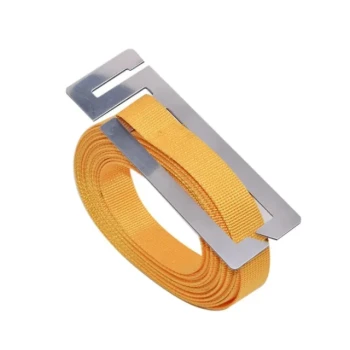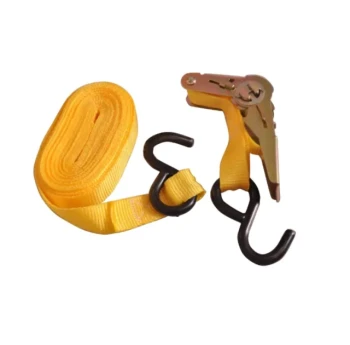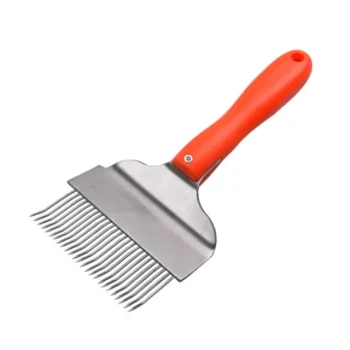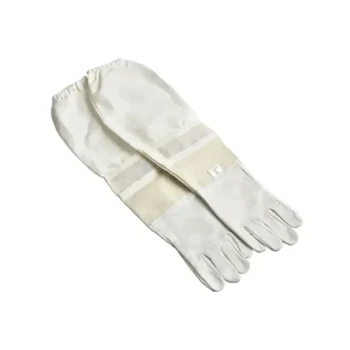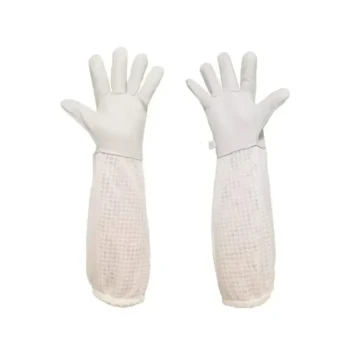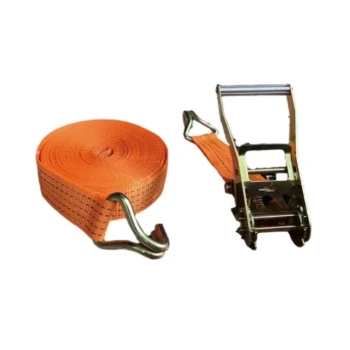The shift from traditional wood to modern plastic frames in beekeeping is not merely a change in material, but a strategic decision driven by clear operational advantages. Many beekeepers have migrated to plastic because it offers superior durability, higher efficiency in the field and honey house, and a significant reduction in long-term costs and pest-related losses.
While wooden frames represent the rich tradition of beekeeping, plastic frames are an engineering solution designed to optimize durability, reduce labor, and minimize hive damage, making them a pragmatic choice for many modern apiaries.
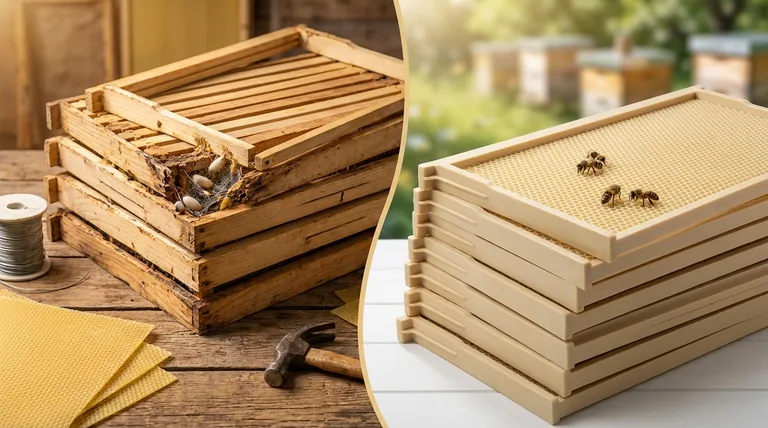
The Core Advantages of Plastic Frames
The move toward plastic is rooted in solving common, practical challenges that beekeepers face season after season. Plastic offers a resilient and standardized alternative to its traditional counterpart.
Superior Durability and Longevity
Wooden frames are susceptible to rot, warping, and breaking, especially under the high torque of honey extractors. This fragility leads to frequent repairs and replacements.
Plastic frames, being a single molded piece, are far more robust. They withstand the stress of extraction and resist environmental degradation, providing a much longer service life and reducing the recurring cost of replacement.
Enhanced Operational Efficiency
Assembling wooden frames and wiring in wax foundation is a time-consuming, skilled task. Plastic frames typically come as a single unit, often pre-coated with a layer of beeswax.
This "ready-to-use" nature dramatically cuts down on preparation time, allowing beekeepers to manage more hives with less labor. Their uniform shape also simplifies automated uncapping processes in larger operations.
Inherent Pest Resistance
The wax moth is a destructive pest whose larvae burrow through wooden frames and beeswax, destroying drawn comb. This can cause significant economic loss and hive disruption.
Plastic is impervious to these pests. Wax moths cannot tunnel into the plastic foundation, breaking their lifecycle and protecting the invaluable drawn comb from destruction.
Why Wood Still Holds Its Place
Despite the clear benefits of plastic, wooden frames remain a popular choice, particularly for beekeepers who prioritize tradition and natural materials.
Natural Material and Bee Acceptance
Bees naturally build their comb on wood in the wild. Some beekeepers observe that bees are more willing to draw out comb on pure beeswax foundation, which is most commonly used with wooden frames.
This can be a critical factor in the initial establishment and expansion of a colony.
Repairability and Flexibility
A broken wooden frame component can often be repaired or replaced with a new part, extending the life of the frame.
Wood also offers more flexibility for beekeepers who prefer to use different types of foundation (like wax or even starter strips) rather than being limited to the integrated plastic foundation.
Understanding the Trade-offs
The choice between wood and plastic is not about one being definitively "better" but about which set of compromises aligns with your goals.
Initial Cost vs. Long-Term Value
While prices vary, plastic frames can sometimes have a higher upfront cost per unit.
However, their extended lifespan and resistance to damage often result in a lower total cost of ownership over several years, as the need for replacement is significantly reduced.
Bee Adaptation Challenges
A common critique of plastic frames is that bees can sometimes be slow to accept them, particularly if the factory-applied wax coating is thin.
Beekeepers often mitigate this by adding an extra layer of melted beeswax to encourage the bees to begin drawing out the comb.
Rigidity vs. Warping
Plastic is extremely rigid and will not warp from moisture, ensuring it maintains a perfect shape. However, it can become brittle and crack in very cold temperatures.
Wood, conversely, has more natural flexibility but is prone to warping and bowing over time, which can create spacing issues inside the hive.
Making the Right Choice for Your Apiary
The decision to use wood or plastic hinges entirely on your beekeeping philosophy, scale, and operational priorities. There is no single correct answer.
- If your primary focus is maximizing efficiency and minimizing long-term costs: Plastic frames are the superior choice due to their durability, low labor requirements, and pest resistance.
- If your primary focus is natural beekeeping and material flexibility: Traditional wooden frames may better align with your philosophy, allowing for pure beeswax foundation and easier repairs.
- If you are unsure or just starting: Using a mix of both types in your hives is an excellent strategy to directly compare which performs better for you and your specific bees.
Ultimately, the best frame is the one that aligns with your management style and supports the long-term health and productivity of your colonies.
Summary Table:
| Feature | Wooden Frames | Plastic Frames |
|---|---|---|
| Durability | Prone to rot, warping, and breaking | Highly robust, withstands extraction stress |
| Setup & Labor | Time-consuming assembly and wiring | Often ready-to-use, reduces preparation time |
| Pest Resistance | Susceptible to wax moth damage | Impervious to wax moths and larvae |
| Long-Term Cost | Lower initial cost, higher replacement cost | Higher initial cost, lower total cost of ownership |
| Bee Acceptance | Natural material, often readily accepted | May require extra wax coating for better acceptance |
Ready to optimize your apiary's efficiency and durability?
As a leading wholesale supplier to commercial apiaries and distributors, HONESTBEE provides high-quality plastic frames designed for maximum longevity and operational savings. Our products help you reduce labor costs, minimize pest-related losses, and achieve a higher return on investment.
Contact HONESTBEE today to discuss your wholesale needs and discover how our beekeeping supplies can benefit your operation.
Visual Guide
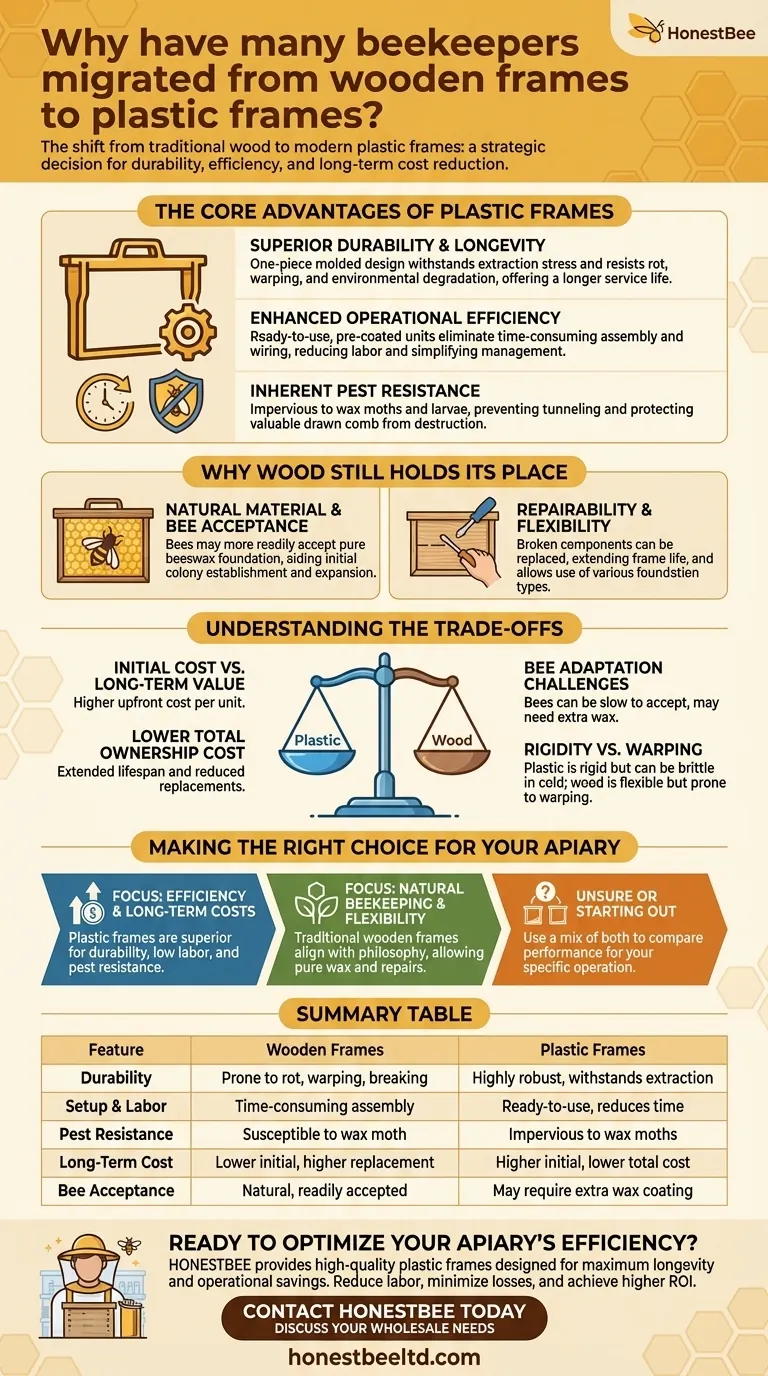
Related Products
- Wooden Bee Hive Frames for Beekeeping and Wholesale
- Professional Galvanized Hive Strap with Secure Locking Buckle for Beekeeping
- Copper Bee Frame Eyelets for Beekeeping
- Langstroth Honey Bee Box Hive Boxes for Different Depths
- Heavy-Duty Nylon Beehive Hive Strap with Stainless Steel Cinch Buckle
People Also Ask
- What are the benefits of using black plastic foundation? Boost Efficiency for Commercial Apiaries
- Why are plastic frames considered a better long-term investment for beekeepers with many hives? Maximize Efficiency & Durability
- What are the health management advantages of using all-plastic foundations? Eliminate Heavy Metal Risks in Your Hives
- What is the function of beeswax-coated plastic foundations in observing honeybee grooming? Enhancing Research Accuracy
- What are the technical advantages of using wax-coated plastic sheets? Boost Royal Jelly Yields and Larval Acceptance
- Why is plastic foundation recommended when using an extractor to harvest honey? Ensure Structural Integrity for Efficient Harvesting
- Why is plastic foundation preferred for pesticide-free research? Ensuring Chemical Neutrality in Bee Studies
- What are the physical advantages of plastic honeycombs? Boost Your Honey Extraction Efficiency and Yield




